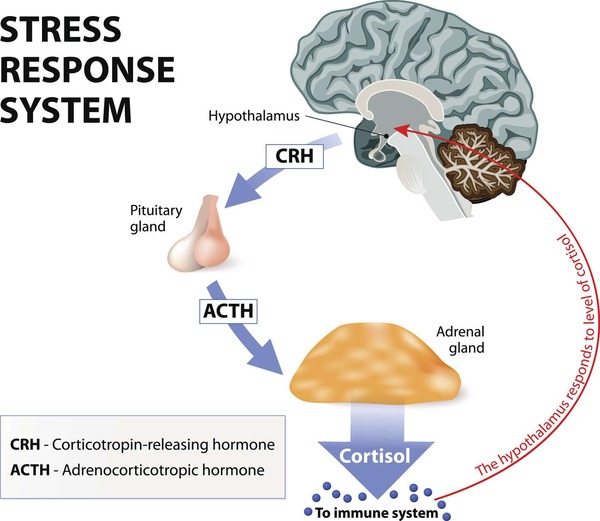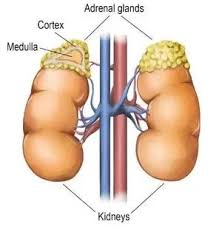Adrenal gland insufficiency, a condition where the adrenal glands fail to produce adequate hormones, particularly cortisol, can significantly impact overall health. The adrenal glands, two small, walnut-shaped organs located atop the kidneys, are responsible for producing various hormones, with cortisol being the primary stress hormone.
Cortisol, often called the “stress hormone,” is released when the body experiences stress or danger as part of the flight-or-fight response. In cases of adrenal gland insufficiency, also known as adrenal fatigue or adrenal burnout, the adrenal glands struggle to produce enought cortisol. This imbalance can lead to various health issues.

Two Types of Adrenal Gland Insufficiency
There are two main types of adrenal gland insufficiency. Primary adrenal insufficiency results from problems with the adrenal glands themselves, such as autoimmune disorders or infections. Secondary adrenal insufficiency occurs due to a lack of ACTH, the hormone from the pituitary gland that stimulates the adrenal glands. Issues with the pituitary gland or hypothalamus can lead to low ACTH and adrenal insufficiency.
Cortisol plays a crucial role in maintaining normal blood pressure and blood sugar levels during stress. It also activiates when one is ill. Symptoms of adrenal gland burnout can include fatigue and muscle weakness, nausea, decreased appetite and weight loss Severe cases may lead to confusion and loss of consciousness.
While adrenal gland fatigue can be debilitating, high cortisol levels also pose health risks. Prolonged high cortisol can cause weight gain, osteoporosis, diabetes, and high blood pressure. It may also lead to fatigue and cognitive impairments. Cushing’s syndrome, an adrenal gland disorder, is often associated with chronic high cortisole levels.
High caffein intake as well as chronic stress can contribute to elevate cortisol. While there are medications for both low as well as high cortisol levels, consider ifestyle changes. Poor sleep significantly impacts cortisol levels. Regular exercise, such as 30 minutes of walking or cycling, can help reduce cortisol. Activating the parasympathetic nervous system through relaxation techniques like meditation or massage therapy can also balance cortisol.
Diet and Adrenal Gland Insufficiency
Being mindful of one’s diet can help reduce stress. Limit caffeine. Caffeine triggers the stress response. Consider cutting back of coffee, caffeine based teas, (there are many teas that have higher levels of caffeine in them than coffee!) as well as soda and energy drinks. Also, opt for smaller, frequent meals instead of large ones to reduce bodily stress.
To diagnose adrenal disorders, including adrenal insufficiency, doctors may use blood or salivary cortisol tests. Remember, this information is for educationsl purposes only. Always consult your medical doctor for professional advice on adrenal gland insufficiency and other health concerns.
Barry Schustermann
Follow me on X @BarrySchust
Follow me on Facebook @Barry Schustermann



